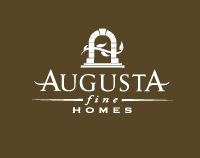 When it comes to financing your new home, there's a wide variety of mortgage products available to you. Being diligent about the type of mortgage product you choose based on your current financial situation and your future financial goals can save you tens of thousands of dollars in the long run.
When it comes to financing your new home, there's a wide variety of mortgage products available to you. Being diligent about the type of mortgage product you choose based on your current financial situation and your future financial goals can save you tens of thousands of dollars in the long run.
Let's take a look at some of the types of mortgages available. To learn more and to discuss your unique situation, we recommend speaking to one of our sales representatives, or a qualified mortgage specialist.
Closed Mortgage
A closed mortgage is the most common type of mortgage homeowners choose, since it locks in a specific interest rate for a selected term. This type of mortgage provides peace of mind in terms of a static, regular payment amount for the term of the loan.
Fixed rates are generally locked in for a period of anywhere from one to five years, with five being the most popular choice. If you know the market's interest rates have a likelihood of increasing in the next few years, selecting this type of mortgage ensures you lock in your existing interest rate and avoid the increase when it occurs. The drawback to a closed mortgage is there are significant penalties if you need to break your term before it has matured.
 Open Mortgage
Open Mortgage
Opposite to a closed mortgage, an open mortgage allows you to pay down or pay off your mortgage before the end of the term without any penalties. The interest rate on this type of mortgage is higher, and the terms tend to be shorter. This type of mortgage is ideal if your existing closed mortgage is about to mature and you would like to renew, but you aren't entirely certain for how long to renew.
This is a great option if you're in the process of buying a new home and your existing mortgage is coming up on maturity. By renewing for a shorter term on an open mortgage, you can then close your purchase on your new home without having to pay out penalties or do any hefty paperwork to close out your old mortgage.
Convertible Mortgage
This type of product is similar to an open mortgage where you receive a fixed interest rate for a term of six months to a year, with the intent to convert into a longer term later. This, of course, requires you to stay with the same lender, but it's a great option if the interest rates are fluctuating and you expect them to drop a bit. Once they drop, you can then convert into a longer term and lock in that lower rate.
 Variable Rate Mortgage
Variable Rate Mortgage
When you obtain a variable rate mortgage, a payment is calculated for you to include interest and principal. Your payment will remain consistent throughout the term of the mortgage, but the interest rate will fluctuate, adjusting the amounts of your payment that apply to interest and principal. If the interest rates increase, less of your payment will apply to the principal balance of your mortgage. If they decrease, you gain far more in principal application.
Capped Rate Mortgage
Similar to the variable rate mortgage, this type of mortgage has an interest rate cap applied by the lending institution. In other words, your lender will guarantee that despite interest rate fluctuations, you will not pay a rate higher than their cap. This type of mortgage will be subject to penalties if you make accelerated payments and pay off your balance early, but you benefit from the peace of mind of never paying more than the instituted interest rate cap.
These are simply a few types of mortgages highlighted as the most popular choices for your financial needs. Of course, depending on the lending institution there may be alternative options that work better for your situation, so this may be a consideration to make before you lock in a lender. It's always best to consult with a mortgage specialist to find the best solution for your unique needs.




